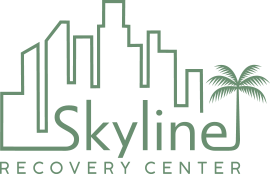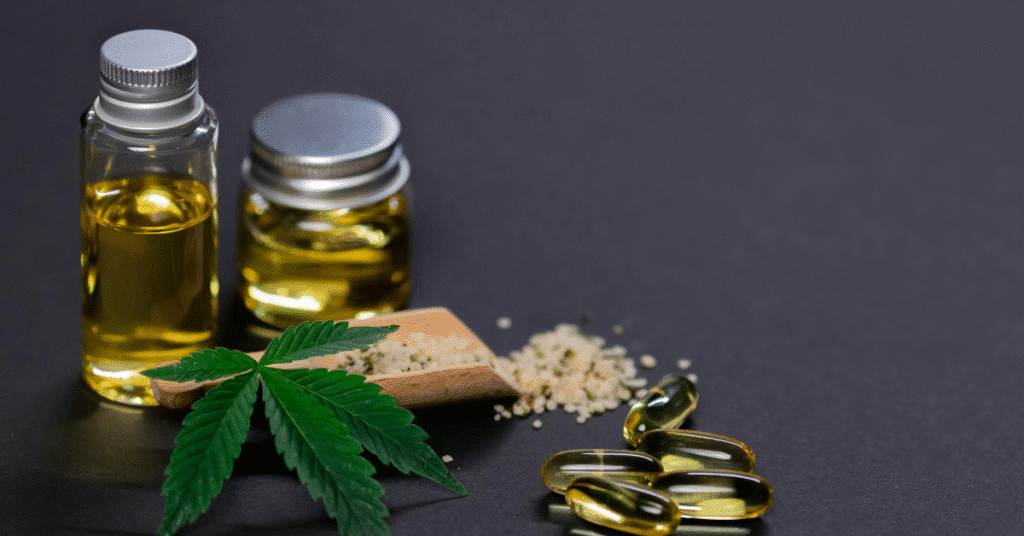Starting recovery is tough, no matter where you are. In a place like Los Angeles, the challenge can feel even more daunting when there’s so much going on, and sometimes, it feels easier to escape problems than confront them.
But here’s the truth: lasting recovery isn’t about escaping. It’s about facing your struggles head-on and learning how to live without relying on substances.
Whether you’re in a drug addiction treatment center in Los Angeles County, CA, or working through it on your own, building a strong, sober life is completely possible.
This blog is here to offer you the practical tools and real advice you need to stay sober, avoid relapse, and create a future that doesn’t involve your past addiction.
Let’s talk about how you can make this journey work for you in LA.
Understanding Drug Addiction
When someone is addicted to drugs, they often feel a compulsive need to use them, even when they know it’s causing harm. This happens because addiction changes the way the brain works.
At its core, addiction hijacks the brain’s reward system. When drugs are used, they flood the brain with chemicals that create feelings of pleasure or euphoria. Over time, the brain gets used to these intense feelings and starts relying on the drugs to feel “normal.”
The result? The person becomes dependent on the substance to function, and what starts as occasional use can quickly spiral into addiction.
It’s important to note that addiction isn’t just about willpower. It’s a medical condition that requires treatment and support to overcome.
No one chooses to be addicted, but with the right help, anyone can break free from the cycle.
What Causes the Cycle of Addiction?
Addiction follows a predictable cycle that can be tough to break, but understanding it can help you or a loved one get the help needed to stop it.
The High: It starts with a sense of relaxation, energy, or emotional numbness. This high is what people often crave when they turn to drugs.
Tolerance: Over time, what once worked with a small amount of the drug now requires higher doses, which can be dangerous.
Dependence: As the person becomes more dependent on the drug to function, their body adapts to the presence of the substance. Without it, withdrawal symptoms can kick in.
Withdrawal: When the person tries to stop using the drug or reduces the amount, their body reacts negatively. Withdrawal symptoms can vary from mild (like anxiety or sweating) to severe (like nausea, shaking, and even seizures).
The Cycle Continues: The person may go back to using drugs to relieve withdrawal symptoms or recapture that initial high, continuing the cycle.
Breaking this cycle is the key to recovery, and it often requires professional help to address both the physical dependence and the psychological triggers that drive the addiction. This is the reason that early intervention through drug addiction treatment in Los Angeles is crucial.
Mental and Physical Health Impact of Addiction
The impact of addiction goes far beyond just the drug use itself, it can take a serious toll on both physical and mental health.
- Drugs can damage organs like the liver, heart, and kidneys.
- Increased risk of heart disease, lung issues, and digestive problems.
- Drugs like opioids and alcohol can impair breathing.
- Increased chance of overdose, especially with opioids.
- Addiction can worsen or cause mood disorders like anxiety and depression.
- Difficulty with memory, focus, and decision-making.
- Some drugs can trigger paranoia, hallucinations, and delusions.
- Long-term use can lead to anxiety, depression, or even schizophrenia.
- Addiction often leads to mood swings and emotional volatility.
Signs of Drug Addiction
Addiction can sometimes be hard to spot, especially early on.
But recognizing the signs can make a big difference in getting someone the help they need before the problem becomes severe.
Here are some physical, behavioral, and psychological signs to watch for:
Physical and Behavioral Signs
- A person may stop caring about their appearance.
- Snorting drugs can damage the nasal passages, leading to frequent nosebleeds.
- Injuries, such as unexplained bruises, may result from impaired coordination or accidents while using substances.
- Sudden weight loss or gain without a clear explanation.
- Drugs suppress appetite, causing weight loss, while alcohol or opioids may lead to weight gain.
- There may be frequent borrowing of money or valuables to fuel drug-seeking behavior.
- Unpredictable mood swings, aggression, or irritability are common signs.
- A person might switch from being hyperactive to withdrawn or lethargic, often without explanation.
Psychological Symptoms
- Difficulty concentrating, forgetfulness, and a sense of being “out of it.”
- It becomes harder for the person to focus on anything other than getting high.
- Activities that once brought joy or fulfillment may be abandoned.
- The focus shifts entirely to obtaining and using the drug, leaving little room for hobbies or social connections.
- Extreme emotional shifts are a hallmark of addiction.
- The person may go from being happy to deeply depressed or calm to enraged with little warning.
- Certain drugs can cause excessive anxiety or paranoia.
- The person might insist they have control or that it’s not as serious as it seems.
Best Options for Drug Addiction Treatment in Los Angeles
Behavioral Therapies
Behavioral therapies focus on changing unhealthy thought patterns and behaviors related to addiction.
Some therapies that are used during treatment are:
- Cognitive Behavioral Therapy (CBT) helps people recognize and change negative thoughts that lead to drug use.
- Contingency Management rewards positive behavior, like staying sober, which helps motivate recovery.
- Dialectical Behavior Therapy (DBT) teaches skills to manage strong emotions and stress. These therapies are helpful because they teach new ways to cope and reduce the chances of relapse.
Medication-Assisted Treatment (MAT)
MAT uses medications alongside therapy to help people manage cravings and withdrawal symptoms.
For opioid addiction, medications like methadone and buprenorphine reduce cravings. Naltrexone helps with alcohol addiction by blocking the effects of alcohol.
Medications like these make it easier to focus on recovery by managing physical dependence, allowing people to feel more stable during the process.
Outpatient Treatment
Outpatient treatment is more flexible and allows individuals to live at home while receiving therapy. It’s ideal for those with less severe addiction or for those transitioning from inpatient care.
People attend counseling and therapy sessions a few times a week while continuing their normal routine.
Outpatient care provides the support needed without requiring a person to leave their daily life behind.
Support Groups
Support groups like AA (Alcoholics Anonymous) or NA (Narcotics Anonymous) provide peer support from people who understand addiction.
These groups allow individuals to share their experiences and encourage each other. The 12-step program in AA and NA helps people stay accountable and connected.
If you prefer something different, SMART Recovery offers a science-based approach to help people take control of their recovery.
Holistic and Alternative Therapies
Holistic therapies focus on healing the whole person: body, mind, and spirit. Yoga and meditation are great for reducing stress and increasing mindfulness, which can help with cravings.
Acupuncture can ease withdrawal symptoms, while art therapy and music therapy provide a creative outlet for self-expression.
These therapies complement traditional treatments and offer additional ways to heal.
Ways to Avoid Relapse and Have a Long-lasting Recovery Journey
Recovery from drug addiction is a journey, not a destination. But with the right strategies, it’s entirely possible to avoid relapse and build a long-lasting recovery.
Here are some key tips to help you on your path.
- Build a Support Network: Support groups like AA or NA in Los Angeles can provide accountability and community, which makes recovery stronger.
- Stick to a Routine: Creating a daily routine helps keep you grounded and focused. This keeps you busy and away from temptation.
- Avoid Triggers: Know your triggers and avoid situations or people that could lead to relapse. Setting boundaries is key to staying sober.
- Manage Stress Effectively: Stress is one of the biggest relapse triggers. Stress management is often a big part of drug addiction treatment in Los Angeles.
- Stay Committed to Therapy: Talking through your challenges and emotions helps you understand your addiction and stay focused on recovery.
- Celebrate Small Wins: Every day sober is a victory. Celebrate the small milestones to stay motivated and keep moving forward.
- Learn from Setbacks: Setbacks happen. Learn from them and get back on track. Resilience is key to long-term recovery.
- Set Long-Term Goals: Whether it’s rebuilding relationships, going back to school, or starting a new job, setting goals gives you motivation for the future.
By staying committed to your recovery and using the right resources, like a drug addiction treatment program in Los Angeles, CA, you can stay on track and enjoy a life of long-term sobriety.
Seeking Help for Addiction? Explore Drug Addiction Treatment Centers in Los Angeles
If you’re ready to take control of your recovery, the right support is just a step away. With numerous drug addiction treatment options in Los Angeles, you can find a program that aligns with your goals and needs.
We at Skyline Recovery Center offer trusted drug addiction treatments in Los Angeles County, CA, with resources and care necessary for a successful journey to sobriety.
Start your path to recovery today by exploring a drug addiction treatment program in California designed to help you thrive.
Your new life begins now. Take the first step to rebuilding a better life.


